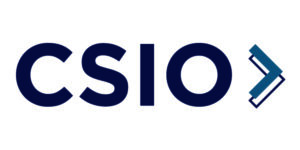What is evidence of insurability?
Quick Facts
Evidence of insurability (EOI) is proof of good health to determine eligibility for particular insurance coverage
Your insurer only requires evidence under specific circumstances, such as a late application or application for an increase in the amount initially enrolled
This requirement is typically in place to protect the insurer from the risk of an individual with a pre-existing condition or health concern
In the insurance world, evidence of insurability (EOI) is a term used to describe the documents and other information that insurance companies need to approve or deny coverage for an individual.
It’s basically a way for insurers to verify an applicant’s eligibility for coverage. Generally, EOI includes personal information, medical history, and lifestyle information about the applicant.
Let’s take a closer look at what evidence of insurability is and why it’s important.
What is evidence of insurability?
What exactly is EOI in insurance? Evidence of insurability (EOI) provides proof of eligibility for a particular insurance cover. It involves providing your insurance company with your current health record details, which it evaluates to determine eligibility.
Evidence of insurability gives your insurer a clear view of your health status to determine the extent of risk involved in providing you with such coverage.
Under normal circumstances, where an employee applies for coverage within the amount and period provided, evidence of insurability is not necessary. However, situations like late application and applying for benefits beyond the guaranteed amount will require proof of insurability.
Now that you’ve learned the definition of evidence of insurability let’s find the requirements for EOI.
Your life insurance quotes are always free.
Secured with SHA-256 Encryption
What is required to show evidence of insurability?
The specific information required for evidence of insurability will vary from company to company and case to case. However, there are some general items that life insurance companies often request.
Personal identification details such as your name, birth date, and address
Medical history, including any past or present diagnosis, treatments you have previously undergone, and any medications you may be taking
Any previous hospital admissions and surgeries
Any pre-existing medical conditions or risk factors, such as a family history of certain diseases or conditions
Your previous and current healthcare providers’ contact information
The type and amount of coverage you are applying for
Any other information the insurer may deem necessary to determine your health status
In some cases, the life insurance company may require that you undergo a medical exam before they can decide on your coverage.
How To Submit Evidence of Insurability
How to submit EOI will depend on the company and the nature of your application. For example, you may need to send copies of your medical records via mail or be required to fill out an online form.
Make sure you research and follow the instructions to ensure that your insurer receives all the necessary information on time.
What happens after you submit your evidence of insurability?
After submitting your EOI, the insurance company will review it and determine whether or not to approve your coverage. If they approve it, you will get the insurance policy you applied for.
If your evidence of insurability is not approved, you may need to provide additional or different information. You may also need to work with an agent or broker to determine the best course of action for your situation.
What kinds of insurance require evidence of insurability?
Various types of life insurance require proof of insurability, including disability, long-term care, critical illness, and life insurance. The following requests will require EOI.
Late application of coverage. If you apply for coverage after the initial enrollment period, or if the coverage is higher than the guaranteed limit provided by your employer, you may need to provide evidence of insurability.
Application for an increase in coverage. If you need to increase the amount of coverage that you have, or if you want to change your policy, you will likely need to provide evidence of insurability.
Adding a dependent on your coverage. If you add your spouse or child to your family health insurance plan, you may need to provide proof of their medical history and risk factors.
Application after the previous declination of coverage. If your insurer declined your previous application, reapplying for coverage will require evidence of insurability.
Application for optional benefits. Optional benefits, such as accelerated death benefits or living benefits, will likely require evidence of insurability.
Why is evidence of insurance required?
There are several reasons why life insurance companies may require evidence of insurability. These include
To assess your overall health status, including any current or past illnesses and conditions
To determine whether or not you are a good risk for coverage
To assess the level of risk associated with providing coverage to you
To evaluate any special circumstances or factors that may impact your health status, such as your occupation or lifestyle choices
To ensure that you are being honest and providing accurate information in your application
Overall, evidence of insurability is required to help insurers assess the overall risk of providing coverage to an individual. Therefore, it is important to understand this process and work closely with your insurance provider to ensure successful application and coverage.
Your life insurance quotes are always free.
Final Thoughts on Evidence of Insurability
If you are applying for life insurance, critical illness coverage, disability insurance, or another form of insurance, you will likely be required to provide evidence of insurability.
Typically, this involves submitting your medical records, filling out an online form, or taking other steps to prove that you are a low risk for coverage and can manage any potential health risks associated with the insurance policy.
There are several reasons why insurance companies require EOI from their applicants. These include assessing your overall health status, determining whether or not you are low-risk, and evaluating any special circumstances that may impact your health status.
It is important to work closely with your insurer and follow all required steps and protocols in a timely and accurate manner to successfully obtain coverage through EOI.
Additionally, always be honest and forthright in your application, as any misrepresentations or omissions may increase your risk and result in a decline of coverage.
Frequently Asked Questions
What does EOI stand for in insurance?
EOI stands for “evidence of insurability.” It is a term used to describe the information that an insurance applicant must provide to demonstrate that they are healthy and at low risk for making insurance claims.
What does ‘evidence of insurability’ mean?
Evidence of insurability refers to the information required from insurance applicants to show that they are healthy, stable, and low-risk for insurance claims. This information may include health records, medical assessments, and information about lifestyle choices such as smoking or alcohol use.
What do they ask in evidence of insurability?
The specific information requested will vary depending on the type of insurance and other factors related to your application. However, in most cases, you may be asked to provide information on your medical history, current health status, and any pre-existing conditions.
What is involved in an EOI?
In most cases, the evidence of insurability process involves completing a health questionnaire and/or providing medical records. Depending on the particular situation, it may also involve undergoing a medical exam.
Under what conditions will proof of insurability not be required?
Suppose you apply within the initial or open enrollment periods for certain types of insurance, such as health or life insurance. In that case, you may not be required to provide evidence of insurability. Additionally, group coverage through an employer or other organization may not require evidence of insurability.
Your life insurance quotes are always free.
Editorial Guidelines: We are a free online resource for anyone interested in learning more about life insurance. Our goal is to be an objective, third-party resource for everything life insurance-related. We update our site regularly, and all content is reviewed by life insurance experts.
Rachael Brennan has been working in the insurance industry since 2006 when she began working as a licensed insurance representative for 21st Century Insurance, during which time she earned her Property and Casualty license in all 50 states.
After several years she expanded her insurance expertise, earning her license in Health and AD&D insurance as well. She has worked for small health in…
Full Bio →
Written by
Rachael Brennan
Licensed Insurance Agent
Benjamin Carr was a licensed insurance agent in Georgia and has two years’ experience in life, health, property and casualty coverage. He has worked with State Farm and other risk management firms. He is also a strategic writer and editor with a background in branding, marketing, and quality assurance. He has been in military newsrooms — literally on the frontline of journalism.
Full Bio →
Reviewed by
Benji Carr
Former Licensed Life Insurance Agent







